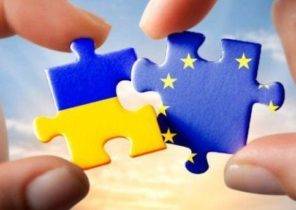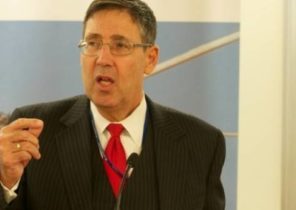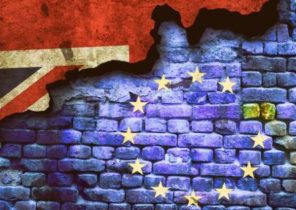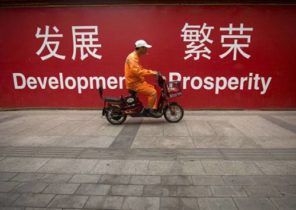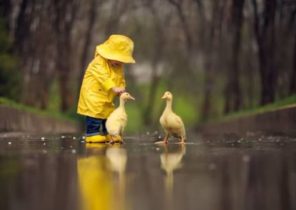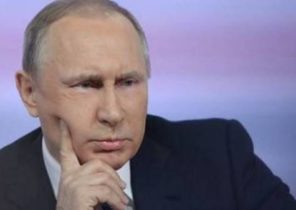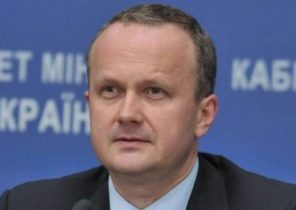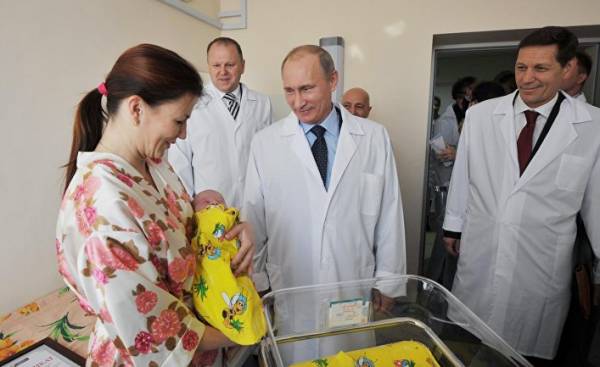
Sitting surrounded by 18 children, Hope Oak frowns, remembering multiple births: “it is Easier with time becomes. Childbirth is a great work.” The hope of a little more than 50, she is slim and youthful brunette. Looking at her, would not believe in her maternal achievement.
“I gave birth to 15 children in the usual way, — she says. — Three via C-section. These childbirth with caesarean was like a vacation.” The first child, and she and her husband, the priest of the Russian Orthodox Church of St. John, was born in 1984, shortly before coming to power in the Soviet Union of Mikhail Gorbachev. The eighteenth was born in 2009, when communism and the Soviet Union has long gone.
Than they were guided, creating such a big family? “Love,” answers John, patting the wife’s hand and looking into her gradually reddening face. This stately father of a family 53 years old with a long graying beard firmly in love with his spouse.
Osaki by any standards, the family is exceptional. One who is familiar with parental care, who changed diapers, rocked babies when they were teething, who didn’t get enough sleep at night when the children had colic, who tried to persuade a fussy child to eat one more spoonful of fruit puree will be amazed by looking at their achievements. But in Russia today, families like Osaki, acquired additional importance.
The Russian leadership has long been aware that the country faces a demographic crisis. After the collapse of the Soviet Union, Russia’s population decreased rapidly up to 700 thousand people annually. In the period from 1992 to 2009, the country has lost about six million people, or four percent of its population.
Suddenly, it became clear that Russia is facing the end, and that it will die not from a nuclear Armageddon. Since the country was born less people than die, the population of Russia simply flowed through the drain hole of history. During the election campaign in 2012, Vladimir Putin sounded the alarm.
“We risk becoming a global sense of “empty space”, whose fate will be decided not by us”, he warned. This is a big problem, rooted in the years of the Second world war, with their horrible wounds, the history of Stalin’s purges and artificial famine of the 1930-ies.
But the state has offered one simple solution. Parents in Russia should follow the example of Osjakow and have more children. Today, state-aphrodisiac is a combination of money and propaganda. Since 2007, for the second and third child the parents pay extra money. And in 2008, established a special order of “Parental glory”.
Parents who have seven or more children (biological or adopted), invited to the Kremlin, where they received the award from the hands of the President. Asaki got her one of the first. Hope with great warmth recalls the awards ceremony. She was awarded the President Dmitry Medvedev, who held the post for four years before and after Putin.
People with good memories will remember that a similar award existed in the Soviet times, and awarded her parents with many children. The award in his time was mother of father John, who had 18 children. The older Oak honored for fertility, but for her religion in the atheist Soviet Union looked disapprovingly.
Father John has many memories of religious intolerance. He angrily recalls how her mother tried to buy some materials for the construction of a family house, but returned from the store with empty hands. “God will help” — with a sneer said the seller. But times have changed.
Today Osaki live in a huge house on the outskirts of the southern port city of Rostov-on-don. The house is completely built, furnished and equipped thanks to the generous donations of the richest people in the country.
These changes were the result of a nationwide religious revival. It seems that the Russian Orthodox Church and Putin’s government in love with each other not less than Hope and John. The Primate of the Church, Patriarch Kirill happily cooing about Putin’s leadership and calls the President “a miracle of God.”
Although Putin was in the KGB, who persecuted priests and believers, John also is very enthusiastic about the President: “This man like a father, like my father. He cares about everyone in the country. He cares about big families.” This admiration is mutual: Putin is betting on large families, seeing them as the future of Russia.
Krasnikova
42-year-old priest Sergei Krasnikov and his 37-year-old wife Catherine have seven biological children and nine adopted. Following the example of the priest, the congregation of his Church in Rostov-on-don began to adopt children with mental and physical development.
Father Sergey of the don Cossacks, and that means that his ancestors were warriors who defended once the borders of Russia. He preaches a more rigid version of Christianity, organizing courses on culture of the Cossacks, and regular military training for attending his Church’s youth.
During a recent summer camp, the children were very enthusiastic about learning how to clear mines, to handle weapons and fight hand to hand. They can find practical application for their skills: Rostov-on-don, close to Ukraine, and occasionally there can be heard the sound of cannon fire.
“Russia has never started war first, says father Sergey, — but we are constantly being attacked and so we must be ready.” Looking at me with a steely gaze, he adds: “We are very hospitable, very good people. But if you want to cross us, take heed.”
Osaki
Father John (OSAC) and his wife Hope were among the first awarded the order “Parental glory”. The award was presented by the President and the award has become one of the many initiatives aimed at increasing the birth rate in the country.
In Soviet times the family of his father John had suffered for their religion, but in today’s Russia it became an incredible celebrity as the father of 18 children. He had eight girls (Olga, Elena, Maria, Tatiana, Anna, Hope, Evdokia, Daria, Ksenia and Anastasia) and ten boys (Ivan, Alex, Eugene, Alexander, Vladimir, Gregory, Sergei and Seraphim) (SIC — approx. TRANS.).
Four of his sons followed in his father’s footsteps and became priests, and the fifth is studying in a Seminary. Values of this family is religious, conservative and Patriotic is the sentiment in the Russian state.
“The world saw how Russia was on her knees, but then came up again, says father John. They will see the beauty, joy and kindness to all. And all countries will lean to Russia.”
Tatiana Sorokina
Tatyana 66 years, and her first child she adopted in 1975. Her late husband was an orphan and was determined to save as many children from the misery of orphans in the state orphanage. From Sorokin had two children of her own. And 74 children they adopted or took care of.
According to estimates Tatiana, she is in the family of 120 members, including grandchildren. Currently living with her 17 children. “Tomorrow you can postpone anything but food,” she says, sitting in the kitchen where dried linens.
The children around her in turn sit at the table to eat. The last foster child five-year-old nick appeared in the family two months ago. Former foster family abandoned him. We talk, and Tatiana waiting for a phone call, hoping to adopt three more children from the orphanage in the Siberian city of Irkutsk.
Some children Tatiana belong to the category of “social orphans”. So in Russia are called orphans, but left without their care. Her foster children is a real catalogue of social problems in Russia: poverty, drug addiction, alcoholism. And increasingly as the solution to the problem is religion.
